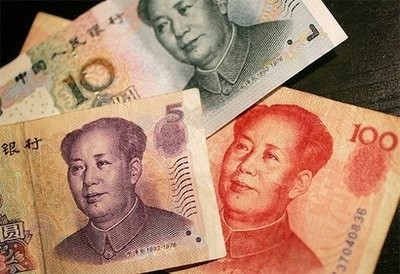China on Friday hit back at US President Barack Obama over his comments on the value of the yuan, saying the issue was not a political one and was not the solution to global trade imbalances.
Obama on Thursday called on China to adopt a "market-oriented" exchange rate policy, increasing the pressure on Beijing to allow the yuan -- effectively pegged to the dollar since mid-2008 -- to appreciate.

The United States and the European Union, key trade partners for China, say the Communist leadership has intentionally kept the currency low to boost Chinese exports, vital to the country's recovery from the global crisis.
"We believe the yuan exchange rate issue will not help shrink or increase our trade surpluses and deficits," People's Bank of China vice governor Su Ning said, according to Dow Jones Newswires.
"We don't agree with politicising the renminbi exchange rate issue," Su said on the sidelines of China's annual session of parliament.
"We also don't agree with a country taking its own problems and having another country solve them."
Obama, whose speech to the Export-Import Bank in Washington was the latest salvo in an increasingly tense Sino-US relationship, said the rebalancing of the global economy was essential in the aftermath of the global slowdown.
"Countries with external deficits need to save and export more. Countries with external surpluses need to boost consumption and domestic demand," Obama said.
"And as I've said before, China moving to a more market-oriented exchange rate will make an essential contribution to that global rebalancing effort."
Relations between China and the United States have been strained for months over a number of issues, including the value of the yuan, several trade disputes, US arms sales to Taiwan and Obama's meeting with the Dalai Lama.
Also on Thursday, the US State Department slammed China's human rights record in an annual report, highlighting increased repression in the restive Tibet and Xinjiang regions, and the detention and harassment of activists.
Speculation is mounting that the US Treasury will soon label China a currency "manipulator" in a forthcoming semi-annual report.
Chinese Premier Wen Jiabao said last week that the yuan would be kept "basically stable" in 2010, but experts say there is room for potential movement.
























